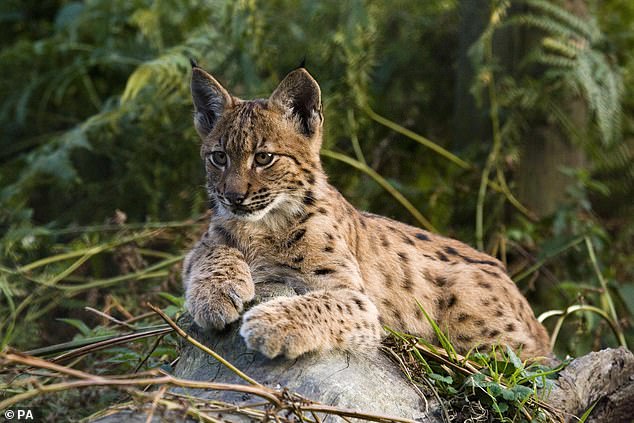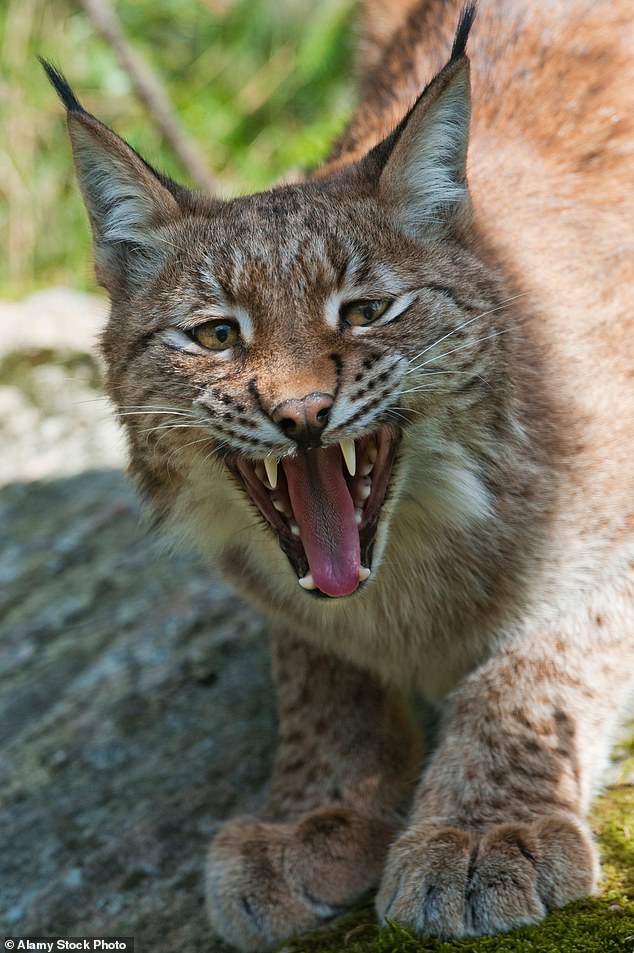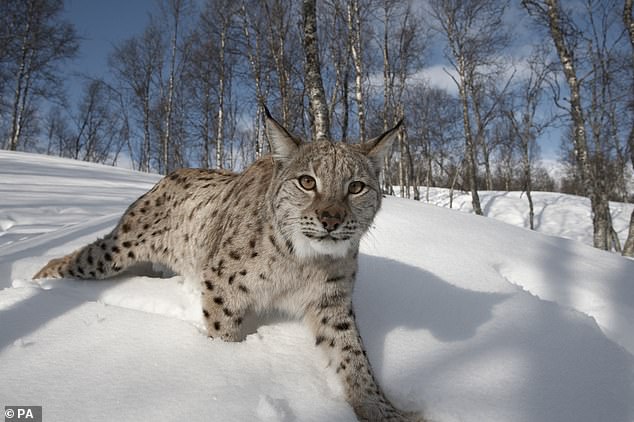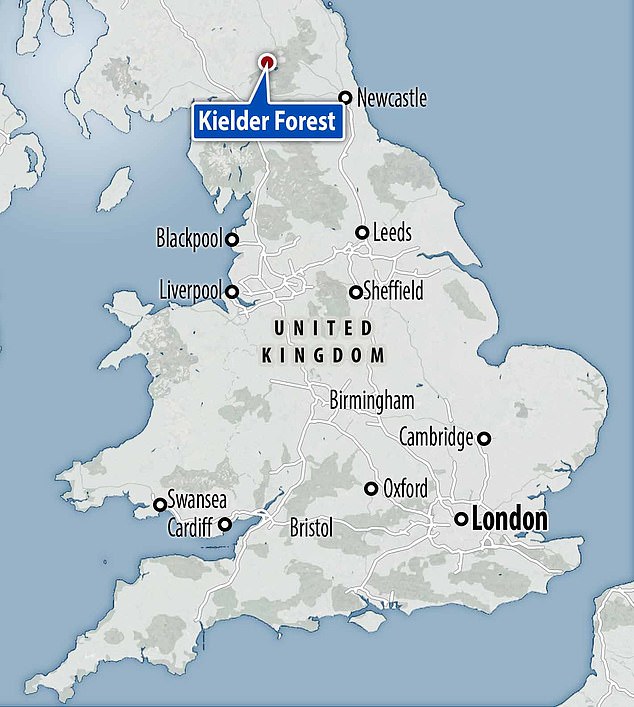The chair of Natural England has renewed calls for Lynx to be reintroduced to Britain.
Tony Juniper, the chair of Natural England, said he would be ‘absolutely delighted’ if the reintroduction of the cats could be achieved during his two-year term.
However, he admitted debates about the release of the animals remain ‘polarised’ and said more engagement with the public was needed.
The Lynx UK Trust has submitted a draft application for a trial return of lynx to Kielder forest in Northumberland, England’s largest forest, using wild animals which have been rescued from Sweden, The Guardian reported.
The Labrador-sized cats, live in forests and mainly prey on rabbits and deer and do not pose a threat to humans.
The Eurasian lynx was once native to Scotland but was driven to extinction some 500-1000 years ago through hunting and habitat loss.
It has since been reintroduced back in several parts of Europe, including in areas used for farming, hunting, forestry and tourism.
The predator could help control booming numbers of roe deer, supporters of the plan have argued.

While lynx are thought to be harmless to humans, the experts acknowledge that their reintroduction to the UK will bring challenges

Kielder Water & Forest Park, Newcastle, Northumberland, where lynx could be reintroduced

The big cats, which are around the same size as a Labrador dog, now live in mainland Europe, although they’re rarely seen by humans
Officials at Natural England have told the Lynx UK Trust that a trial has been halted because the Department for Environment, Food and Rural Affairs (Defra) rules it illegal under the Dangerous Wild Animals Act.
The charity’s chief executive Paul O’Donoghue has called for Environment Secretary Steve Reed to make the necessary legal tweak to solve the problem, however has not been able to arrange a meeting with Mr Reed.
Mr Juniper said he hoped a cross-border conversation with officials in Scotland could help boost the chances for the return of the lynx to the UK.
He said: ‘Lynx do need big areas of habitat and there could be some opportunities to combine nature recovery over parts of northern England with what’s going on in southern Scotland’
‘It is still quite polarised and some of these things will remain divided no matter how much effort you put in, but we need more engagement to understand how communities that would be living with these animals would be able to continue with what they do. There are in some places still serious doubts about that.’
Paul O’Donoghue hit back saying calls for more engagement were a ‘waste of time’.
He said: ‘Unless he has been living under a rock for the past 30 years, Tony Juniper must know that sheep farmers will never change their position on lynx reintroduction, making more calls for more engagement utterly futile.
‘The sad and stark truth is that currently the government are actively blocking any legal attempt at lynx reintroduction.’

The chief of Natural England has called for Lynx to be reintroduced to Britain in the next two years

Two other charities are also working to try and get the cats reintroduced into Britain.
The Missing Lynx Project is also working towards a reintroduction project in Keilder, while the Lynx to Scotland charity recently published a 100-page report on a potential return to the Cairngorms.
The report sought to address concerns from sheep farmers, recommending payments for losses and a rapid-response system for farmers whose flocks were being targeted.
Four Lynx were illegally released into the Cairngorms in January. Three were recaptured and re-homed while another died in the wild.
Many believe the animals were released from a private collection and were too tame to survive in the wild.
Mr O’Donoghue preferred the introduction into Kielder, arguing it offers a spacious area that most benefits the animals, in a forest with few sheep farmers.
He argued the move would also generate millions of pounds to the local economy, bringing sustainable jobs to the area.
He claimed a reintroduction in Harz in Germany was so successful that a second one is being planned.
Asked about a potential legal challenge over the latest lynx reintroduction application, a Defra spokesperson said: ‘This government is absolutely committed to restoring and protecting nature and we support species.
‘We will continue to work with Natural England on species reintroductions in England.’
The government is understood to want more evidence before any reintroduction is considered.












